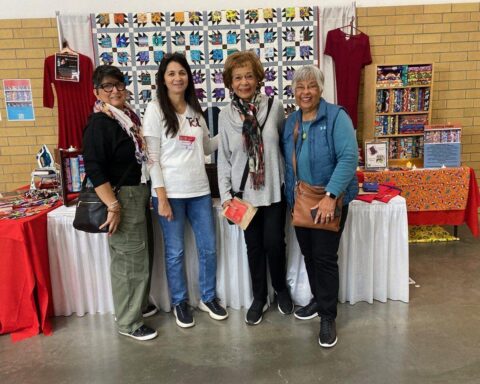Sixty-seven years after the adoption of the Universal Declaration of Human Rights and 50 years after the adoption of the two Covenants, which along with the Declaration became known as the International Bill of Human Rights, the struggle for human rights at home and abroad continues.
It is a struggle that Canadians have been at the forefront of since World War II. Canadian John Peters Humphrey, first Director of the United Nations Division of Human Rights, was central to the drafting of the Declaration.
The underlying principle of the Declaration – that human beings are all born free and equal in dignity and rights – is reflected in section 15(1) of our Canadian Charter of Rights and Freedoms, which guarantees the right to equal protection and benefit of the law.
International Human Rights Day, Dec. 10, will kick off an international yearlong campaign spearheaded by the United Nations (UN) Human Rights Office: Our Rights. Our Freedoms. Always.
[E]ven in Canada we continue to struggle with realizing the full promises of these fundamental freedoms.
The campaign will focus on the four freedoms at the core of the Declaration – freedom from fear, freedom of speech, freedom of worship and freedom from want. We do not have to dig deep into media reports to see that even in Canada we continue to struggle with realizing the full promises of these fundamental freedoms.
Impacts of fear
When then American President Roosevelt gave his Four Freedoms speech after experiencing two world wars, the arms race was the focus of his remarks regarding freedom from fear. Today, freedom from fear means much more and the challenges are even greater.
Fear has dominated our mindset these days. Violence and terrorism is now an ongoing reality that directly impacts Canadians. How can we not be concerned for, even feel fear for, our safety, with attacks such as the Californian and French events fresh on our minds?
[N]o individual going about his or her daily life should fear being targeted by such fear.
But this fear impacts in two ways. The obvious is that we each have the right to go about our daily business without fearing a terrorist attack harming our loved ones. But, in addition, no individual going about his or her daily life should fear being targeted by such fear.
The sign on the lawn that tells Canadian Muslims or Jews to go home, the hijab-wearing woman buying groceries who is accused of being a terrorist, the hateful graffiti on Hindu places of worship, the racism directed at Aboriginal peoples – these are all examples of breaches of every person’s right to be free from fear.
Fear used to marshal hatred
As we mark this milestone date, the Secretary General of the United Nations reminds us, “Millions of refugees and internally displaced persons are a tragic product of the failure to fulfil this freedom [from fear]. Not since the Second World War have so many people been forced to flee their home.”
Fear and hatred of the ‘other’ as justification for racism must be countered.
Our response as Canadians must be to open our doors without discrimination, while exercising all due diligence, as we commit ourselves to continue to build a society based on inclusion and founded on the principles of human dignity and mutual respect.
Hatemongers know that the best way to marshal hatred is to channel it through fear, to manipulate fear to racist ends – often justified through an appeal to narrowly defined identities and collective fears of being overwhelmed.
We are all deeply troubled by the threats to our security and by the impact the violence we are witnessing is having. We should be looking to protect our society and way of life based on our common humanity.
However, that will come with guaranteeing the rights and freedoms of all, when we respect the balance these rights and freedoms demand from each of us. Fear and hatred of the ‘other’ as justification for racism must be countered.
These are the lessons embedded in this year’s International Human Rights Day.
Canada and its residents must be ready for the challenges ahead. Respecting our rights and freedoms can and must be one of the key principles that guide us all as the year ahead unfolds.
Anita Bromberg has been the Executive Director of the Canadian Race Relations Foundation since June 2014.





